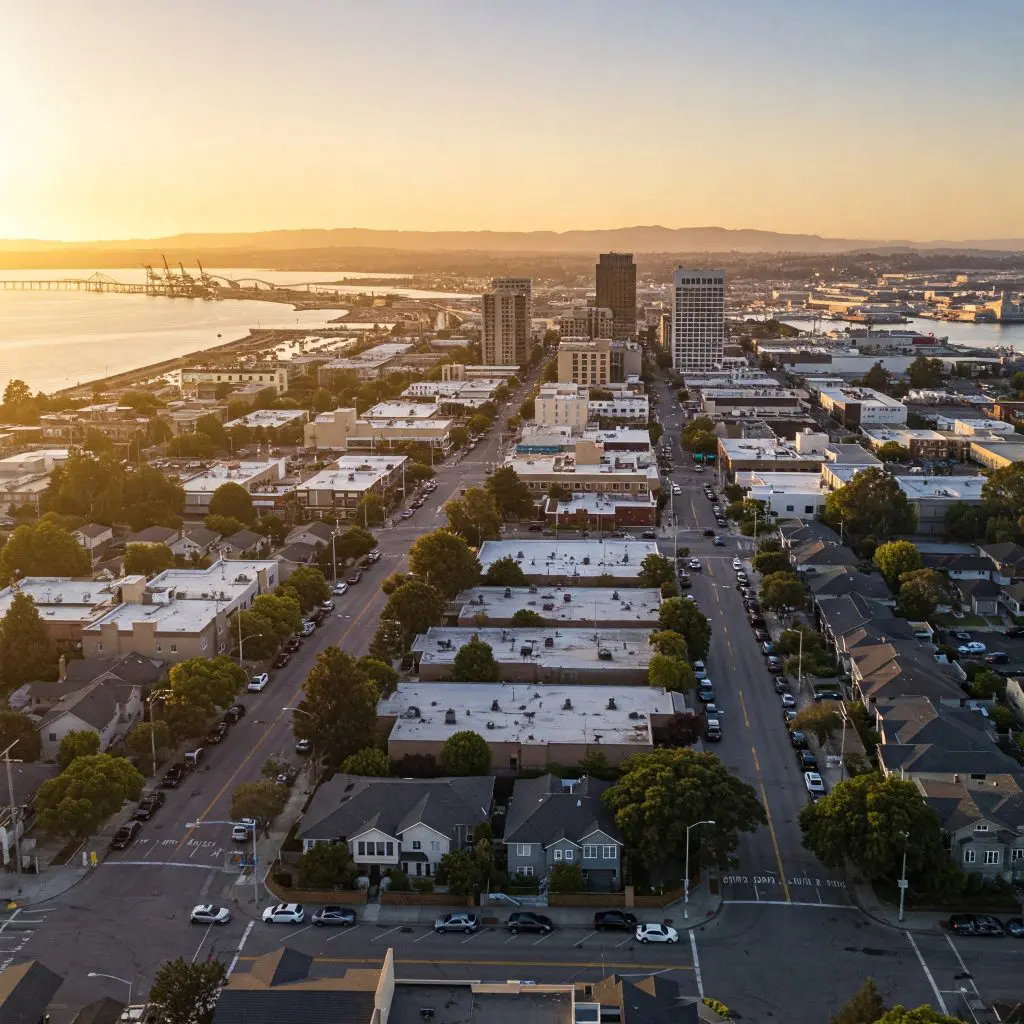Jacksonville Inflation Budgeting & Real Estate Investment Guide 2025: City-Specific Strategies
As high inflation continues to impact American households in 2025, Jacksonville, Florida, stands out for its dynamic growth and evolving real estate landscape. This guide offers a comprehensive analysis of budgeting for inflation in Jacksonville and pinpoints the city’s top real estate investment opportunities in the present climate, drawing on the latest data, neighborhood trends, and market forecasts.
- Jacksonville Inflation Budgeting & Real Estate Investment Guide 2025: City-Specific Strategies
- 1. Introduction: Jacksonville’s Economic Landscape in 2025
- 2. Understanding Inflation in Jacksonville: Trends & Local Impact
- 3. Jacksonville-Specific Budgeting Strategies for High Inflation
- 4. Jacksonville Real Estate Market 2025: Opportunities & Trends
- 5. Best Neighborhoods for Urban Rental Property Investment
- 6. Jacksonville’s Regulatory Environment & Incentives
- 7. Hedging Inflation in Jacksonville: Real Estate Strategies
- 8. Case Study: Urban Rental Success in Riverside
- 9. Jacksonville’s 2025 Economic Outlook & Population Trends
- 10. Neighborhood & District Analysis
- 11. Key Infrastructure and Transit Impact
- 12. Practical Tips for Jacksonville Real Estate Investors in 2025
- 13. Conclusion: Building Inflation-Resilient Wealth in Jacksonville
- Resources & Local Contacts
1. Introduction: Jacksonville’s Economic Landscape in 2025
- Population: Over 990,000, making Jacksonville the most populous city in Florida.
- Population Growth: Steady annual growth around 1.3%, with migration from other states accelerating post-pandemic.
- Major Economic Drivers: Finance, logistics, U.S. Navy bases, healthcare, and a burgeoning tech sector.
- Inflation Rate (2024/2025): Regional CPI up 4.2% YOY in NE Florida (Bureau of Labor Statistics, Apr 2025).
2. Understanding Inflation in Jacksonville: Trends & Local Impact
Inflation has significantly affected housing, utilities, and transportation in Northeast Florida. Rising insurance premiums (especially for coastal property), increased construction material costs, and higher energy prices are pivotal factors shifting local budgets. The city’s relative housing affordability compared to South Florida or the Northeast draws in new residents, but increased demand puts upward pressure on rents and property prices.

3. Jacksonville-Specific Budgeting Strategies for High Inflation
- Housing: Median home price (Q1 2025): $349,000 (+6.5% YOY). Median 2BR rent: $1,560/month (+7.3% YOY).
- Utilities: Up nearly 9% YOY; proactive energy audits and solar installations are becoming popular cost-savers.
- Transportation: Gas prices are 18% higher than in 2023; improved city transit helps budget-conscious commuters.
- Consumer Goods: Grocery costs up 6.1%, with local markets in Springfield and Riverside offering competitive alternatives to national chains.
City-Specific Recommendations:
- Lock in fixed-rate mortgages; avoid ARMs as rates remain volatile.
- Explore utility incentive programs from JEA for energy efficiency upgrades.
- Leverage local transit (JTA buses, First Coast Flyer BRT) over personal vehicles to offset fuel increases.
- Negotiate rent caps or renewal terms in long-term lease agreements.
4. Jacksonville Real Estate Market 2025: Opportunities & Trends
Demand for both multifamily and single-family rentals remains robust, fueled by in-migration and the city’s employment growth. With inflation eroding cash yields elsewhere, real estate in Jacksonville holds particular appeal as a proven hedge. The focus in 2025: Urban rental properties.
Need capital? GHC Funding offers flexible funding solutions to support your business growth or real estate projects. Discover fast, reliable financing options today!
Test Your Expertise: The Complexities of the 1031 Exchange

As a sophisticated real estate investor, you understand that the 1031 Exchange is a cornerstone strategy for tax deferral and wealth accumulation. But beyond the basics, the intricacies of the 1031 Exchange rules can pose significant challenges. This quiz is designed to test your in-depth knowledge and highlight critical nuances that separate casual investors from true experts in 1031 Exchange transactions.
Instructions: Choose the best answer for each question.
⚡ Key Flexible Funding Options
GHC Funding everages financing types that prioritize asset value and cash flow over lengthy financial history checks:
-
Bridge Loans: These are short-term loans used to "bridge the gap" between an immediate need for capital and securing permanent financing (like a traditional loan or sale). They are known for fast closing and are often asset-collateralized, making them ideal for time-sensitive real estate acquisitions or value-add projects.
-
DSCR Loans (Debt Service Coverage Ratio): Primarily for real estate investors, these loans are underwritten based on the property's rental income vs. debt obligation ($\text{DSCR} = \text{Net Operating Income} / \text{Total Debt Service}$), not the borrower's personal income or tax returns. This offers flexibility for those with complex finances.
-
SBA Loans: The Small Business Administration (SBA) guarantees loans offered by partner lenders. While providing excellent terms (long repayment, lower rates), the application process is typically slower than private/bridge funding, often making them less suitable for immediate needs. SBA eligibility heavily relies on the DSCR metric for repayment assessment.
🌐 Learn More
For details on GHC Funding's specific products and to start an application, please visit their homepage:
The Ultimate DSCR Loan for Rental Property Quiz

Are you looking to expand your real estate investment portfolio? A DSCR loan might be the perfect tool to help you achieve your goals without relying on traditional income documentation. Test your knowledge with this quiz to see if you're ready to master the intricacies of a DSCR loan for rental property.
Key Market Trends:
- Rental Vacancy Rates: 4.7% (well below the national average).
- Cap Rates: 6.1–7.5% in prime rental neighborhoods (Downtown, Riverside, Southside).
- Property Taxes: Moderate (effective rate ~0.88%), though rising assessed values push annual bills higher.
- Job Market: 2.8% unemployment in Q2 2025; strong employment in logistics, tech, and healthcare.
5. Best Neighborhoods for Urban Rental Property Investment
Focusing on urban rental properties, certain areas of Jacksonville offer the best inflation-hedged returns and market resilience in 2025:
a) Riverside & Avondale
- Rental rates: $1,650–$2,200 for 2BR units.
- Features: Historic charm, walkability, popular among young professionals.
- Vacancy: Often below 3% for updated properties.
b) Downtown Jacksonville
- Rental rates: $1,450–$2,000 for executive and student rentals.
- Features: Proximity to new urban developments like One Riverside Avenue.
- Incentives: City grants for investors rehabbing historic and mixed-use buildings.
c) Southside / Deerwood
- Rental rates: $1,700–$2,500 for modern apartments near tech hubs and St. Johns Town Center.
- Demand: Growing population of tech workers and medical professionals.
- Transit: Easy access to JTA and I-295 boosts rental desirability.
d) Springfield
- Rental rates: $1,250–$1,800 for renovated historic homes.
- Features: Urban revitalization, emerging restaurant scene, growing appeal for millennial tenants.
- Opportunities: Value-add multifamily and duplex opportunities (often eligible for local tax abatements).
6. Jacksonville’s Regulatory Environment & Incentives
- Urban Core Revitalization Tax Refund (UCRTR): 50% property tax refund for eligible investments in targeted Downtown and Springfield districts.
- Neighborhood Stabilization Initiatives: Jax Housing Finance Authority offers low-interest loans to investors converting blighted properties to rentals.
- Short-Term Rentals: Local regulations tightened in 2024, but long-term rentals face fewer restrictions, favoring investors with a buy-and-hold strategy.
7. Hedging Inflation in Jacksonville: Real Estate Strategies
- Prioritize fixed-rate levered investments (multi-family and SFR portfolios) to lock in current financing costs.
- Renovate for Energy Efficiency: Reduce utility costs, raising cash-on-cash return margins and attracting cost-conscious tenants.
- Participate in City Incentive Programs: Tap into urban core grants and local energy rebates to reduce upfront costs and boost investment IRR.
- Balance Core vs. Periphery: Invest in neighborhoods with rising demand but infrastructure improvements in progress (e.g., LaVilla, Brooklyn).
- Raise Lease Increments: Negotiate annual rent escalations tied to local CPI indices, protecting against inflation.
8. Case Study: Urban Rental Success in Riverside
Investor Story: In 2022, a Jacksonville investor acquired a two-story, four-unit historic property in Riverside for $680,000. After a $120,000 renovation (focusing on energy upgrades and smart home tech), annual gross rents increased by 28%. By 2025, the vacancy rate sits under 2%, cap rate above 7%, and local property values have risen 18% since purchase. Reinvestment in adjacent properties has led to further appreciation across the block, aided by proximity to the planned Oak Street retail corridor expansion.
9. Jacksonville’s 2025 Economic Outlook & Population Trends
- Projected Metro GDP Growth (2025): 4.1% (powered by healthcare, IT, port logistics, and business services).
- Continuing In-Migration: High quality of life and affordability attract both retirees and remote workers from the Northeast and Midwest.
- New Developments: Major projects include the Jacksonville Shipyards, Gateway Jax Downtown mixed-use, and healthcare campus expansions.
10. Neighborhood & District Analysis
| Neighborhood | Strengths | Rental Yields | Growth Potential |
|---|---|---|---|
| Riverside & Avondale | Strong demand, historic amenities, transit links | 6.5–7.2% | High |
| Downtown | Urban revitalization, employment center, incentives | 6.1–6.9% | Medium-High |
| Southside | Modern housing, proximity to jobs, shopping | 6–7% | High |
| Springfield | Historic stock, up-and-coming, tax abatements | 7–8% | Very High |
| LaVilla | Transit, arts scene, lower entry costs | 6.5–7.5% | Medium-High |
11. Key Infrastructure and Transit Impact
✅ Small Business Resources
-
SBA – Small Business Administration
https://www.sba.gov - SCORE Mentors (Free Mentoring & Workshops)
https://www.score.org - Small Business Development Centers (SBDC)
https://americassbdc.org
Are You an SBA Real Estate Loan Expert?

Test your in-depth knowledge on using SBA Loans for owner-occupied commercial Real Estate acquisition. These questions delve into the critical details that can impact your business's growth and financial strategy.
JTA’s continued expansion of the First Coast Flyer (BRT) and improvements along the Skyway system are making previously overlooked districts newly investable. Real estate adjacent to these corridors (particularly near Intercity Bus Rapid Transit stops) sees outsized rent appreciation and lower vacancies.
12. Practical Tips for Jacksonville Real Estate Investors in 2025
- Partner with local property managers skilled in regulatory compliance and tenant relations.
- Buy in areas poised for city-backed infrastructure enhancements or eligible for tax incentives.
- Utilize portfolio diversification (mix of SFR, duplex, and small multifamily) to manage inflation risk.
- Monitor flood and wind insurance cost trends; choose properties just outside flood zones when possible.
13. Conclusion: Building Inflation-Resilient Wealth in Jacksonville
✅ Real Estate Investor Resources
-
AirDNA (Short-Term Rental Data)
https://www.airdna.co - Rentometer (Rent Comps)
https://www.rentometer.com - Zillow Research & Data
https://www.zillow.com/research
DSCR Loan IQ Quiz!

Test your knowledge of Debt Service Coverage Ratio (DSCR) loans!
Despite inflation, Jacksonville’s robust economy, growing in-migration, and proactive city policies create compelling real estate investment openings for 2025. Urban rental properties—in revitalizing neighborhoods and near transit—offer both inflation protection and strong income. Thoughtful budgeting, leveraging local incentives, and targeting neighborhoods on the upswing can help investors and residents alike weather persistent inflationary pressures while building long-term wealth.
Resources & Local Contacts
- City of Jacksonville Economic Development Office
- JAXUSA Partnership (regional market data)
- JAX REIA – Real Estate Investors Association
- JEA Incentive Programs
Get a No Obligation Quote Today.



